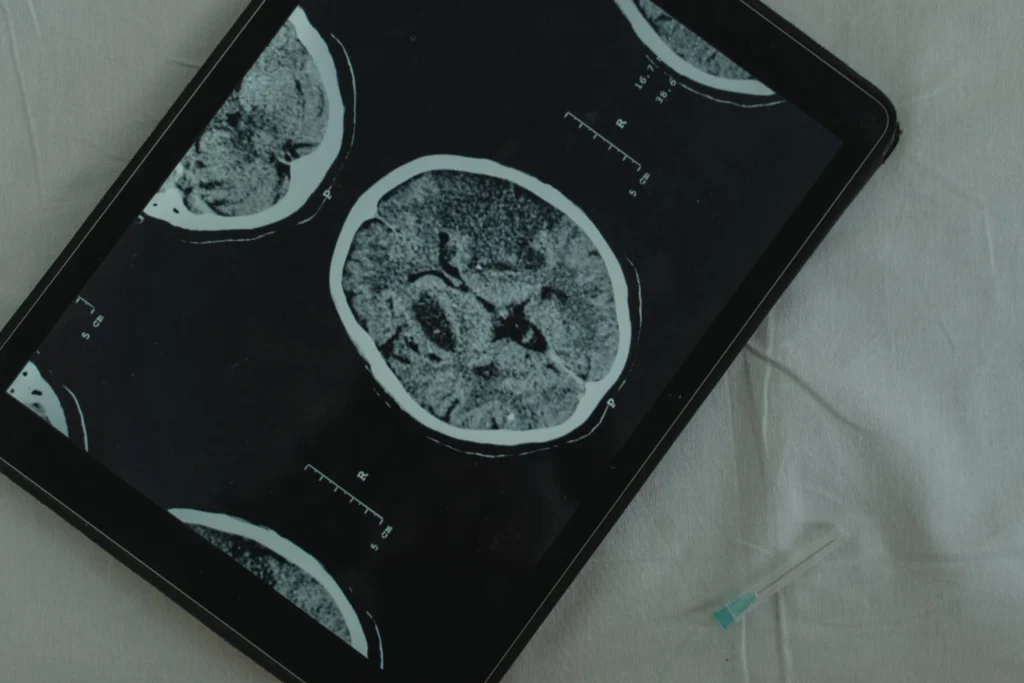Anxiety can be genetic, learned through repeated dysfunctional experiences with family members or other significant people in one’s life, or caused by one or more traumatic events. Anxiety takes many forms. For instance, Post-Traumatic Stress Disorder and Generalized Anxiety Disorder result from emotionally painful experiences which alter one’s brain chemistry and cause various physiological symptoms, such as insomnia, gastrointestinal distress, migraines, and panic attacks. Taking a prescribed anti-anxiety medication or a natural supplement, such as GABA, may be very tempting for someone who cannot sleep, who experiences discomfort throughout the day, who has difficulty with work or academics, and who cannot control ruminating, negative, and/or traumatizing thoughts. Stress responses are normal and necessary for human survival, but anxiety changes the brain’s functioning to be in a constant state of “fight-or-flight” and in a crisis mode. Anxiety occurs in different forms, such as Post-Traumatic Stress Disorder, Generalized Anxiety Disorder, Social Anxiety Disorder, Panic Disorder, and Obsessive-Compulsive Disorder. It also has several possible causes, such as genetics, chronic stress, acute stress, experiencing a traumatic event, and enduring physical, verbal, and/or emotional abuse. Anxiety can also co-occur with Attention Deficit Hyperactivity Disorder, Major Depressive Disorder, Bipolar Disorder, Borderline Personality Disorder, or a Substance Abuse Disorder. In sum, anxiety is complicated!

THE AMYGDALA AND ANXIETY
Anxiety starts when the brain’s primary emotional processor, known as the amygdala, interprets incoming stimuli as threats. The amygdala has a very close relationship with gamma-aminobutyric acid (GABA), the primary inhibitory neurotransmitter which influences one-third of all neurons within the central nervous system and plays a key role in the modulation of anxiety responses to all stimuli. There is a “chain reaction” effect of the amygdala upon the hypothalamus, which controls the major bodily functions of sleep, hormonal regulation, and digestive processes. When anxiety negatively affects the amygdala, the hypothalamus responds by switching on the sympathetic nervous system. The brain then goes into a crisis mode and triggers the release of epinephrine (adrenaline) from the body’s adrenal glands, in order to create physiological defenses toward the perceived threat. Anxiety disorders also create hyper-activation of the excitatory neurotransmitter, glutamate, which causes the individual to experience the disturbing physiological effects of restlessness, rapid heart rate, pressured breathing, and racing thoughts.

THE PREFRONTAL CORTEX AND ANXIETY
Furthermore, the amygdala has a dominant role in managing the higher-order cognitive processes of the prefrontal cortex. When the amygdala is alerted by current stressors or by disturbing memories and worries, there is decreased connectivity between the amygdala and the prefrontal cortex, which is the brain’s executive functioning control center in decision-making, emotional regulation, and overall cognitive processing of daily experiences.
The ventromedial prefrontal cortex is critical for the effective regulation of emotion, particularly anxiety. In fact, neuroscience studies have increasingly correlated anxiety disorders with a dysfunction in the modulation of brain circuits which regulate emotional responses to potentially threatening stimuli. These circuits involve bottom-up activity from the amygdala, indicating the presence of potentially threatening stimuli, and top-down control mechanisms originating in the prefrontal cortex, signaling the emotional salience of stimuli. Understanding the factors that control cortical mechanisms may open the way to identification of more effective cognitive behavioral strategies for managing anxiety disorders.

THE HIPPOCAMPUS AND ANXIETY
The amygdala also communicates directly with the hippocampus, which functions as the storehouse of all memories. When there is a dysfunction of communication between the amygdala and the hippocampus, an individual’s short-term memory capabilities can be negatively affected, which explains why those with Post-Traumatic Stress Disorder tend to suffer from memory lapses. The hippocampus can help the brain with managing fear by producing calming memories or memories of one’s past accomplishments and times when one felt confident, such as achieving work goals or getting through a traumatic experience. However, anxiety alerts the amygdala which then sends excitatory signals to the hippocampus, resulting in uncontrollable surges of painful memories, random worries about one’s future, and an overall sense of dread and helplessness. A final point about the hippocampus is that fMRI scans have detected a smaller volume and density in the hippocampus of those with an anxiety disorder when been compared to those with non-anxious brains.

GABA AND ANXIETY
By far, the main influence of anxiety upon the brain results from the severe disruption of the GABA and glutamate balance, which is necessary for regulating thoughts, emotions, and behaviors when confronted with either real or perceived threats. GABA also contributes to healthy functioning in the immune and endocrine systems by regulating hormone levels, appetite, metabolism, and gastrointestinal processes. The inhibitory action of our main calming neurotransmitter, GABA, counterbalances the excitatory action of another neurotransmitter, glutamate, thus allowing an individual to manage stressful stimuli and to maintain a sense of well-being even when experiencing disturbing emotions. When an individual experiences anxiety, the inhibitory action of GABA becomes debilitated, causing various physiological disturbances, such as stomach pains, increased heart rate, rapid breathing, restlessness, irritability, and insomnia. In a non-anxious brain, GABA slowly unbinds to key calming receptors so that the calmness lasts, resulting in a calming effect of thoughts, emotions, and bodily sensations. In the anxious brain, GABA quickly unbinds from these key receptors, due to the excitatory effect of glutamate which is increased when the amygdala senses a threat. This quick unbinding removes the calming effects of GABA.
TREATMENT OPTIONS FOR ANXIETY
In sum, anxiety disorders seem to be “whole brain” conditions, rather than being limited to one or two brain areas. Due to the negative impact of anxiety upon multiple brain structures and upon GABA and glutamate pathways, anxiety disorders are complex and may require lengthy and diverse treatment approaches. Anxiety can be a lifelong struggle for many people, and prescribed medications are very desirable in reducing or erasing anxiety. Benzodiazepines, such as Ativan, Xanax, and Klonopin, are frequently prescribed to treat anxiety disorders. However, after a prescribed anti-anxiety medication is taken for even a few months, a person’s brain functioning becomes dependent on that medication for relaxation and relief of other anxiety symptoms. Tapering off or stopping these medications causes mild to severe withdrawal symptoms, depending on the level of daily dosages taken. These medications are not intended to be used as a lifelong solution to anxiety symptoms.

Cognitive Behavioral Therapy (CBT) is a type of psychotherapy which helps an anxious individual to identify and then to change or control the disturbing thoughts which create the anxiety symptoms. CBT has been found to be highly effective in treating anxiety disorders, because the therapist helps the anxious individual to gradually gain a sense of control over one’s debilitating thoughts. Mindfulness training is another highly effective treatment for anxiety. Being mindful means that you focus only on the present moment and not on past-oriented or future-oriented thoughts or emotions. However, practicing mindfulness is a learned skill, and you will often get so caught up in a stressful situation or in ruminating thoughts that you will forget to practice this skill. It is important to remember that, due to its negative effects upon multiple brain structures and neurotransmitters, anxiety can often become overwhelming even during treatment. A third therapeutic approach to treating anxiety is Emotion-Focused Coping, which helps the anxious individual to acknowledge the triggering situations and related emotions, so that effective behavioral coping skills can replace the common anxiety responses of being “stuck” or behaving erratically.
If you are struggling with anxiety, it is extremely important that you research the medication options, as well as different psychotherapeutic and spiritual approaches. The ability to confront and revise one’s thoughts is necessary in the process of anxiety management. Thoughts and life circumstances are the causes of anxiety. Although we often cannot control circumstances, we can control our thoughts and behavioral responses in every moment. If you go through the day ruminating about past events or worrying about what may happen, you are not truly living in each moment. All that you can do is to try diligently each day to stop in any given moment, to observe a thought or several thoughts, to determine what emotions are related to the thought or thoughts, and to then refocus on what you are actually doing or saying at that particular moment. What does this do for you? It keeps you mentally and emotionally grounded. It also decreases the anxiety caused by irrational or negative thoughts which may be triggers for escapist or self-destructive behaviors.


